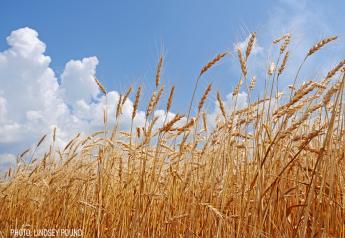Investment that Pays: Teach Farm Kids How to Manage Money

You’ve taught your kids how to drive tractors, herd cattle and identify weeds. But have you passed on your money and management skills? Do they know how to purchase inputs, calculate payments or market grain?
“Many rural children will be operating a family enterprise someday,” says Val Farmer, a clinical psychologist and author who specialized in family relationships during his 30-year career. “Farms and ranches are big businesses that operate in a high-risk economic environment. An essential management tool for farmers is financial management.”
This topic is touchy. Likely your parents or grandparents didn’t open the books to you as an adolescent (maybe not even as an adult). Don’t leave your children in the dark, Farmer says.
“Children and young adults won't automatically know how to do this without handling money and decision-making long before they reach management levels,” he says. “If adult children understand money management, they make better partners. Management philosophy is shared instead of being a point of conflict.”
When should you start teaching farm financial lessons? The earlier the better, Farmer says. His advice:
- Let them handle and spend their own money.
- Let them deal with limited budgets where they have to make choices. They learn the first rule of finances — don't outspend your income.
- Let them earn money for extra work beside their regular family duties. Make sure the pay is in line with community standards for certain jobs, so they get a connection between the world of labor and the cost of things.
Also, encourage regular savings. Farmer suggests letting them have their own checking and savings accounts and encouraging them to save toward future goals.
“Be a role model by living within your means,” he says. “Plan for purchases, save and make the purchases with cash on hand. Talk about what is smart and what is dumb — the hard times and the good times. Part of money management is learning to be generous, give gifts and use money to do good.”
When appropriate, find ways to give your children a stake in the farm. Once they become teenagers, Farmer says, allow them to participate in family business discussions.
“Even if they don't have much to say, they will absorb information and learn about real risks and how decisions are made,” he says. “They will learn to reason with you about business and money matters.”
Projects in FFA and 4-H are great tools for teaching money and enterprise management. The cost of input and labor are calculated and learned, Farmer points out. They will see the payoff and learn the downside too — good training for a future partner someday.
“Caring and managing for their own livestock and other farm enterprises teaches entrepreneurial attitudes and skills,” he says. “They see how farming works and how income is generated through buying and selling, breeding, good health practices, and about absorbing mini-enterprise risks. The proceeds will help them pay for their college education.”
Of course, you may enter into an uncomfortable discussion or two once money is an acceptable topic to discuss. Work through these, Farmer suggests, and stay focused on your goal.
“Many farming operations fall apart in succeeding generations because parents have been too controlling and haven't shared decision-making of dollars and cents financial management,” he says.







